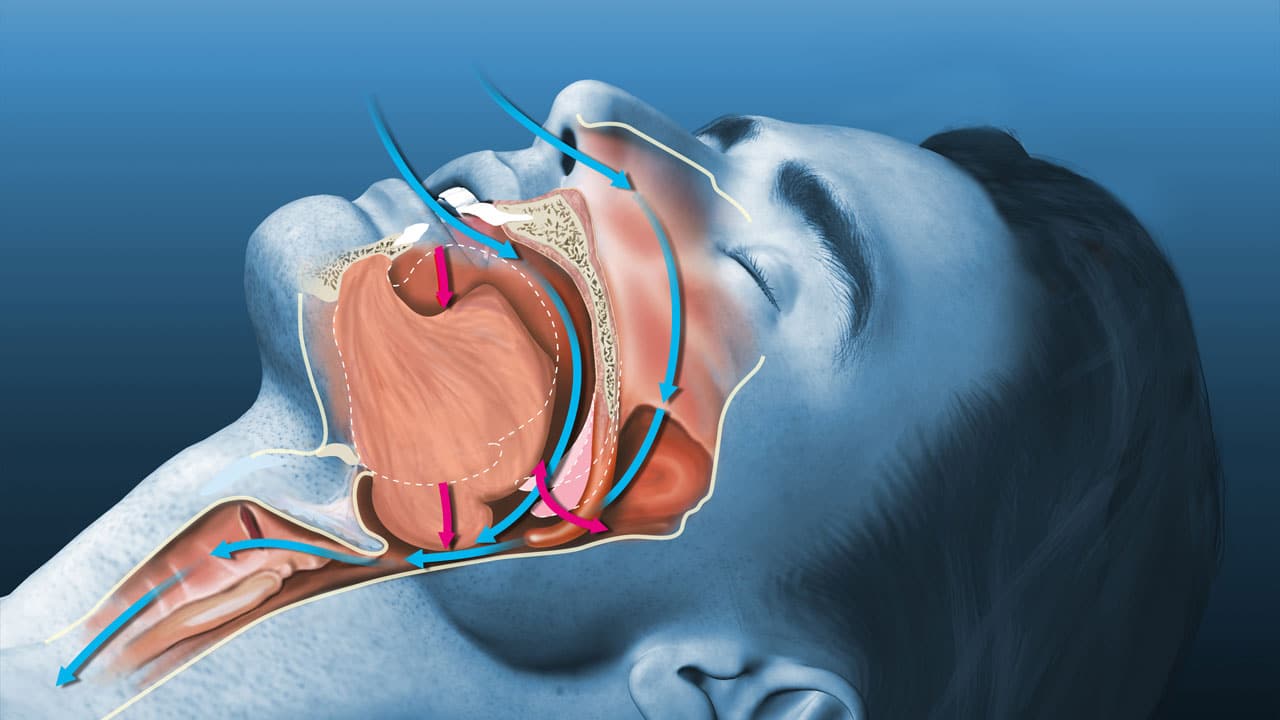
Snoring is a common condition that affects people of all ages. Snoring occurs when the flow of air through the nose and mouth is blocked, causing the soft tissues in the throat to vibrate against the hard palate. Many factors can contribute to snoring, including age, obesity, allergies, and a family history of snorers.
While often considered an inconvenience for sleep partners, long-term untreated snoring can have severe oral and general health consequences, including cardiovascular disease and tooth decay. If you snore, you should talk to your dentist about treatment options.
Dangers of Snoring
While snoring may not always indicate a health problem, it can be a symptom of sleep apnea. Sleep apnea is when you stop breathing for short periods during sleep.
If you snore, you must see a doctor to rule out sleep apnea or other potential health problems. If left untreated, sleep apnea can lead to serious health problems such as:
Low Blood Oxygen Levels
Snoring can cause low blood oxygen levels (hypoxia). Hypoxia occurs when not enough oxygen reaches the brain and other vital organs. When you sleep, your breathing slows down and becomes shallower. This causes the tissues in the back of your throat to relax and collapse. The collapse narrows or blocks your airway, making it difficult for air to flow through.
High Blood Pressure
When your blood oxygen levels drop, it causes your blood vessels to constrict and your heart to work harder to pump blood, which increases blood pressure.
Cardiovascular Disease
Snoring and sleep apnea may trigger vascular endothelial cell impairment. Vascular endothelial cells make up the lining of the blood vessels and interact with blood cells. As a result, serum biomarkers for inflammation, such as high-sensitivity C-reactive protein (hs-CRP) and cyclooxygenase-2 (COX-2), are elevated in sleep apnea patients. Inflammation is a known risk factor for cardiovascular disease.
Daytime Fatigue
Snoring can disrupt sleep and cause fatigue during the day. Daytime fatigue caused by snoring can impair work performance, decrease productivity, and increase accidents and errors.
Decreased Cognition
Studies have shown that snoring leads to a decline in both frontal lobe function and reaction time. Snoring has also been linked to an increased risk of dementia.
Increased Risk of Tooth Decay
When you snore, it causes a dry mouth, contributing to bacteria buildup. The bacteria then produce acids that eat away at your tooth enamel, causing cavities.
Treatment for Snoring
At Smile On Chicago Dental Salon & Sleep Apnea Center, we offer various diagnosis and treatment options for snoring. As an alternative to an overnight clinical sleep assessment, we recommend convenient at-home sleep tests to determine if you snore and measure your blood oxygen levels.
An oral appliance, a small device worn during sleep, is an effective and safe treatment option for snoring. Oral appliances work by holding the tongue and jaw in place and keeping the airway open.
We offer several oral appliances depending on the cause of your snoring, including SomnoDent Oral Appliance, Narval – Mandibular Repositioning Device, and the Thornton Adjustable Positioner (TAP).
We also offer treatment for oral health complications from snoring, such as periodontal care and fillings.
Get a Better Night’s Sleep with Smile On Dental Salon & Sleep Apnea Center
If you’re struggling to get a good night’s rest, visit Smile On Dental Salon & Sleep Apnea Center. We specialize in diagnosing and treating sleep apnea to help our patients get the needed rest.We offer free consultations to help you determine if our services are right for you. So don’t suffer from sleepless nights any longer—contact us to learn how we can help you get a better night’s sleep.
